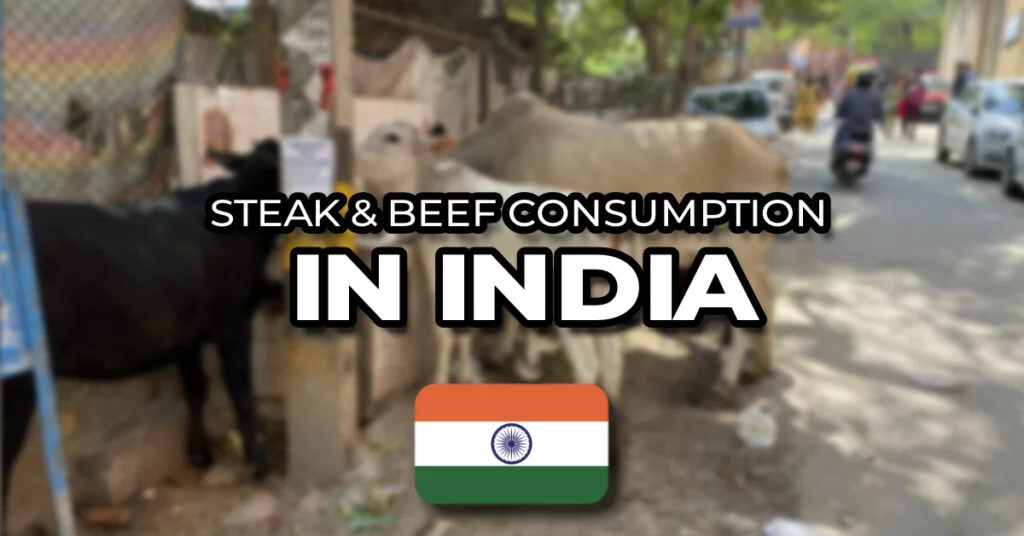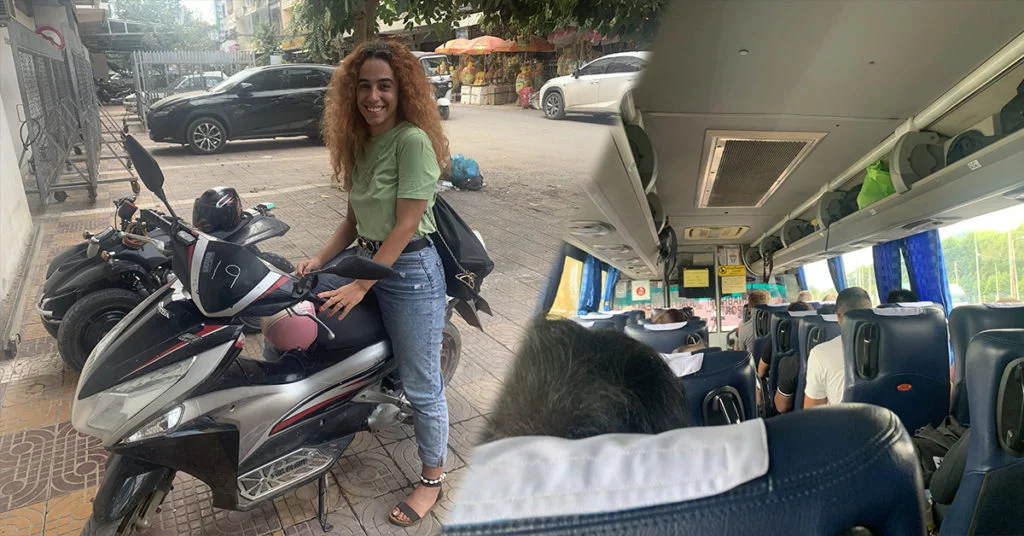Consuming beef in India is something incredibly controversial and taboo. But why is this so? In this article, we’ll dive deeper into the reasons behind the controversy and perceived taboos associated with consuming beef in India. There is actually much more behind it than you might know. It’s a sensitive topic in the country, and these are the few reasons behind that.
Disclaimer: This article is only for educational purposes and to get a better understanding of the topic. It is absolutely not my intention to disrespect the culture or to offend anyone. But rather to educate people on the complexities of this topic.
Where To Eat Beef in India
Instead of cow, you can eat buffalo. You can find this in most Muslim restaurants and areas across the country. A lot of the time you will see “beef” on the menu, it’s almost always likely to be buffalo. If you’re unsure, you can ask the waiter and they’ll let you know about it.
The Ethical & Legal Concerns of Eating Steak in India
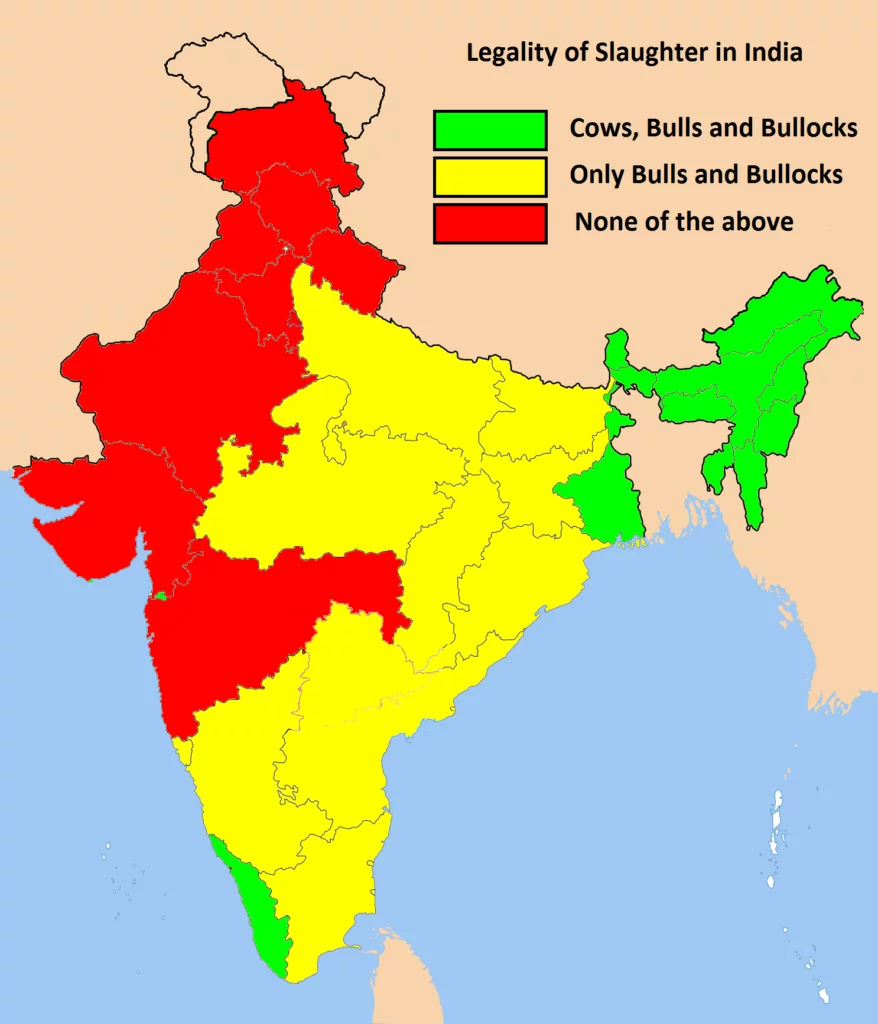
In May 2017, the trading of cows for slaughter was officially prohibited across India. Although the enforcement of this ban has proven challenging in a country as large as India, beef is generally prohibited in the majority of states. Furthermore, if an individual is apprehended slaughtering a cow, they may face severe penalties, including substantial jail time.
So, should a tourist be eating beef in India? You should avoid it if you can. It’s not only disrespectful towards the culture, but it’s also simply safer to completely avoid the beef topic here. It’s similar to how you would avoid talking about controversial topics related to religion and politics. In fact, the beef situation in India is entangled in both of these topics as well.
Extremist cow protectors, also known as cow vigilantes, try to stop beef consumption with violence. There have been 125 cow vigilante attacks against those eating beef in India. Around 28 people have been killed in cow-related violence. It’s a very sensitive topic, and being open about the fact that you’re eating beef or looking for it could potentially be dangerous.
But, this doesn’t mean that no one eats beef in India.
There are many other religions in India such as Muslims, Christians, Sikhs, and many more.
Here’s a small overview of the people eating beef in India and their religion:
- Around 63.4 million Muslims consume beef/buffalo – which is 40% of the entire Muslim population.
- Around 12.5 million Hindus consume beef/buffalo – which is 2% of the entire Hindu population.
- Around 6.5 million Christians eat beef/buffalo – which is 26% of the entire Christian population.
Among Hindus, there’s also a significant difference in who eats beef between the castes people come from. More than 70% of the beef-eating Hindus are from the ‘lower’ caste in the Indian caste system.
It’s not only different per religion, but there are also different rules per state on beef consumption.
States Where Eating Beef is An Absolute NO
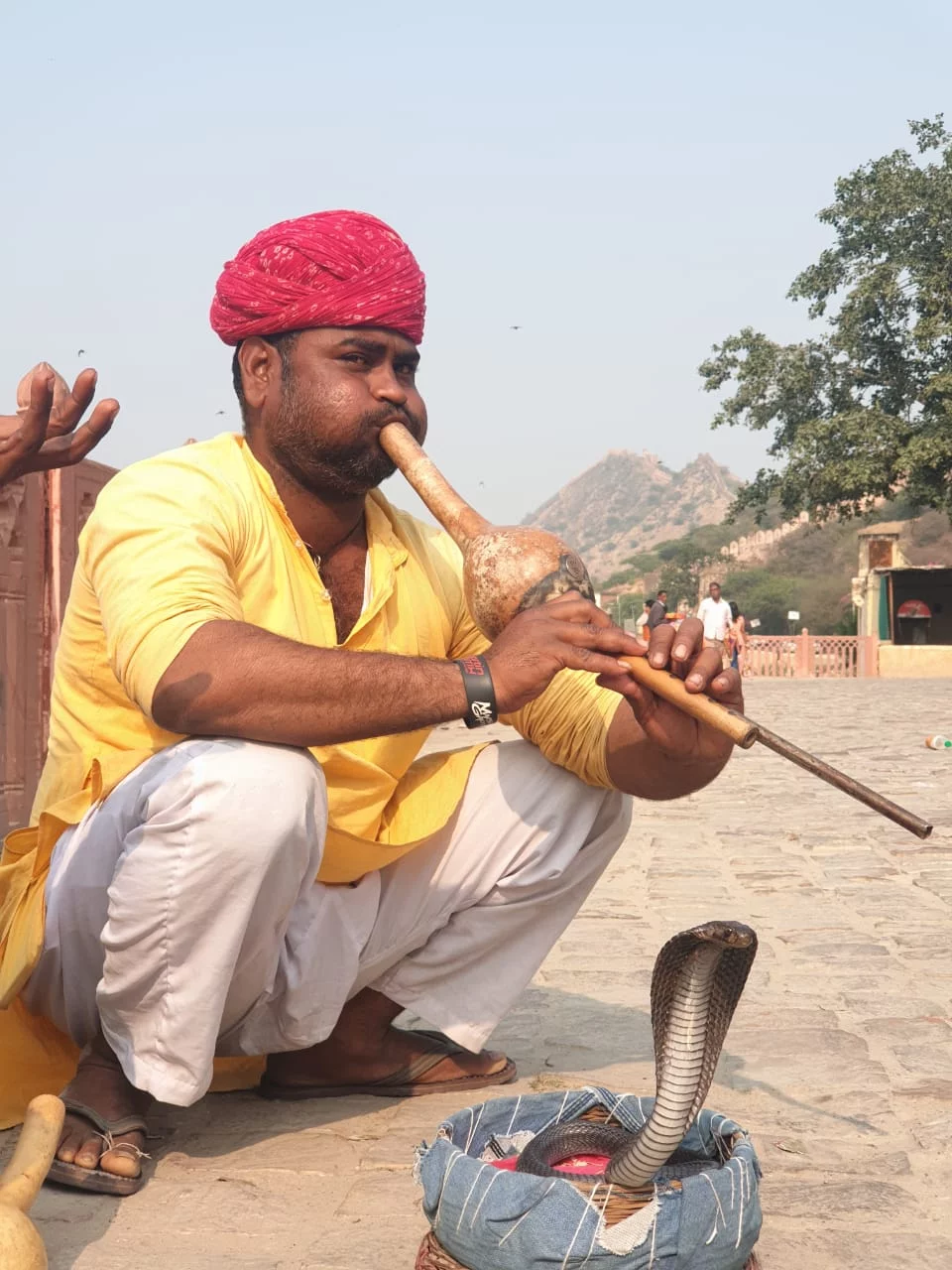
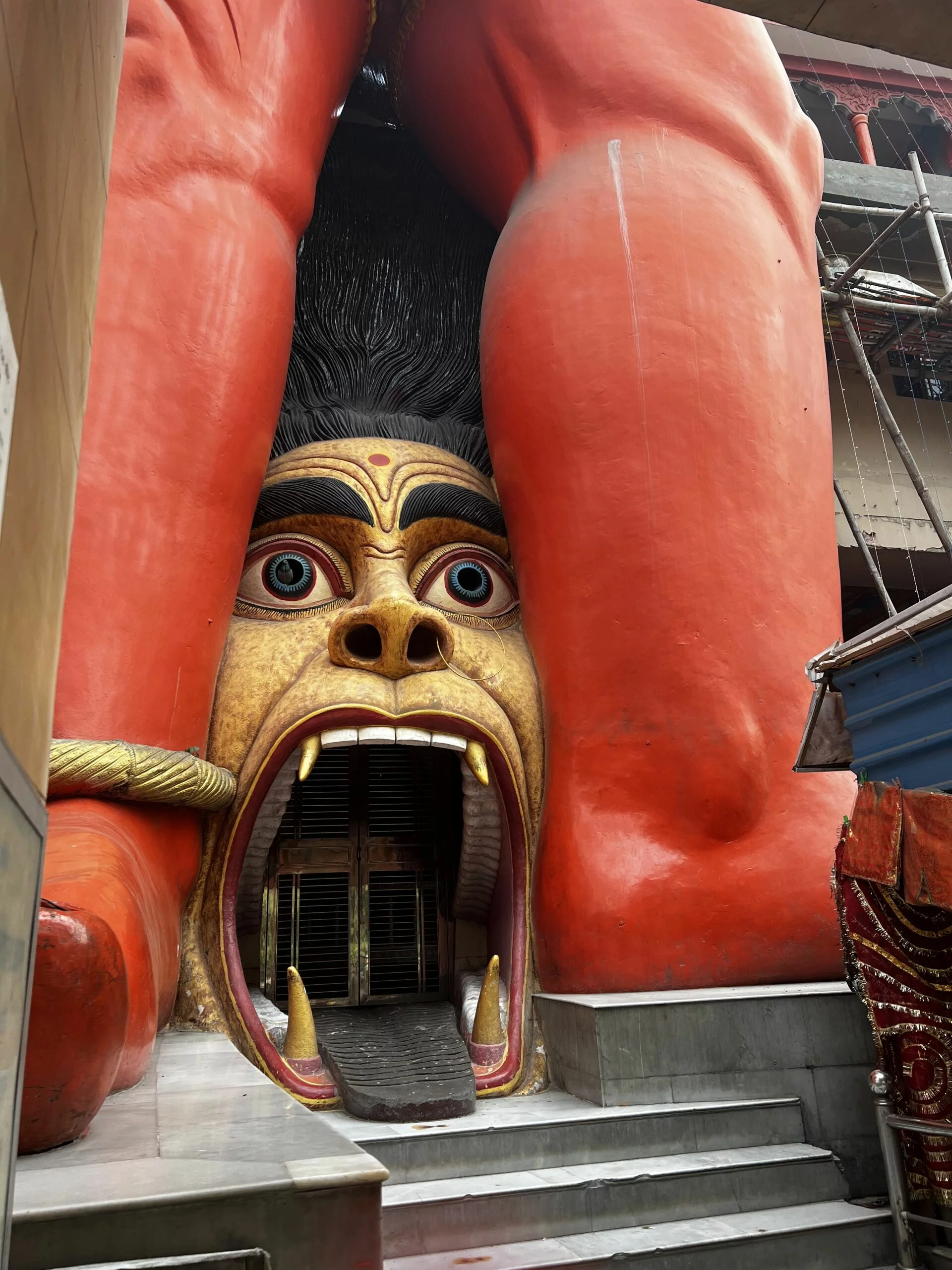
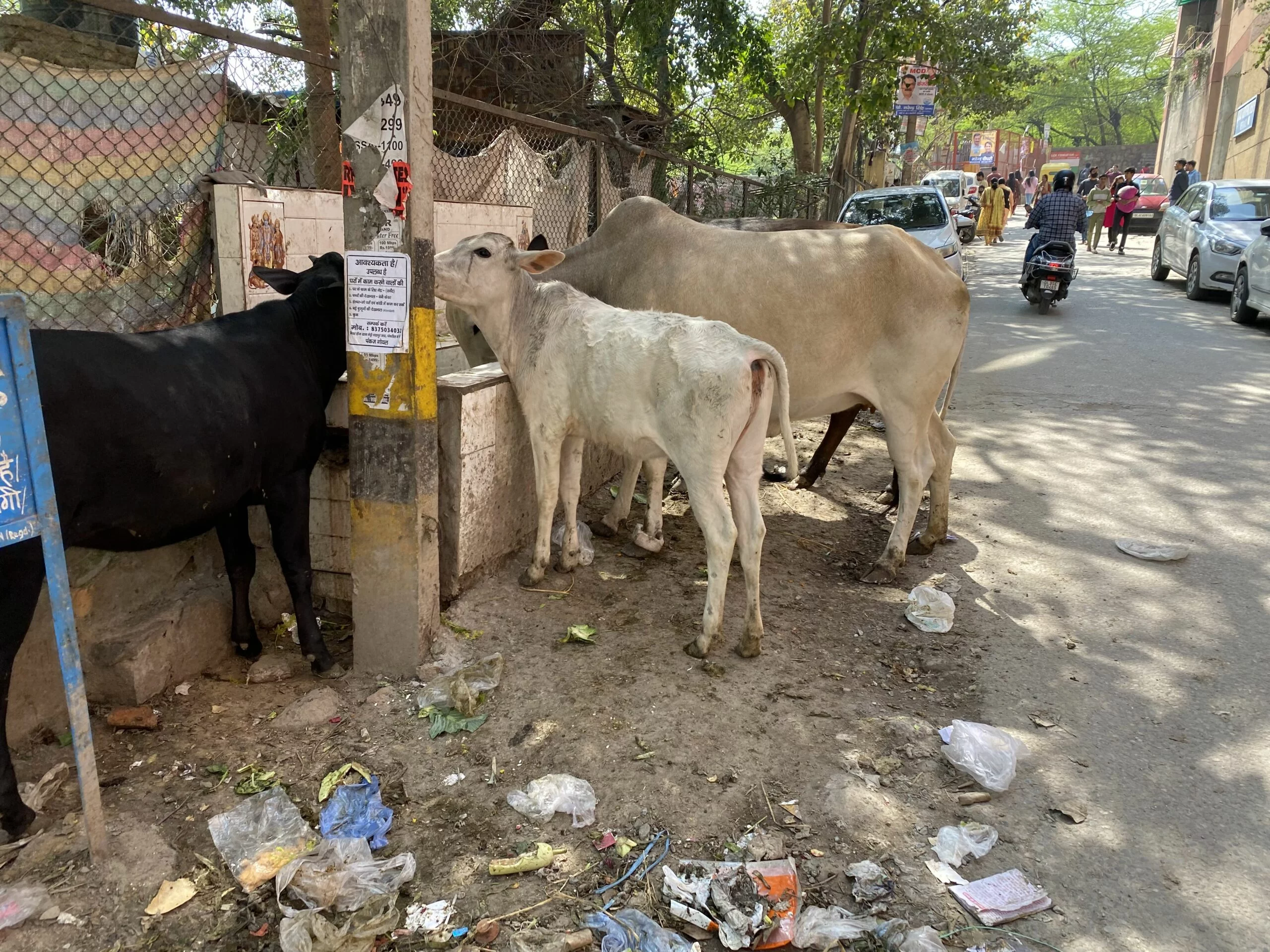
States where it is illegal to slaughter and eat beef in India:
- Uttar Pradesh: Strict prohibition on beef slaughter, consumption, and storage. Violation can lead to a seven-year jail term or a 10,000 rupee fine. Buffalo slaughter is permitted, and beef import is allowed for travelers and foreigners.
- Rajasthan: Complete ban on slaughtering cows and related bovines. Violators may face up to 10 years in jail or a 10,000 rupee fine.
- Punjab: Prohibits cow and related bovine slaughter, except under government permit for export. Imported beef serving is allowed.
- Odisha: Cow slaughter is banned, with penalties including imprisonment or fines. Old bulls and bullocks can be slaughtered with certification; diseased cows may be slaughtered.
- Maharashtra: Bans slaughtering cows, bulls, and bullocks, punishable by jail or fine. Buffalo slaughter is permitted.
- Madhya Pradesh: Strict ban on cow slaughter with up to seven years in jail. Guilt is presumed until proven innocent. Buffalo slaughter is allowed.
- Karnataka: Prohibits cow slaughter and out-of-state transportation for slaughter. Old bulls and bullocks can be slaughtered with certification; possession of beef is not criminalized.
- Jammu and Kashmir: Bans cow slaughter and possession of cow flesh, with severe penalties. Buffalo slaughter also prohibited.
- Himachal Pradesh: Slaughtering cows or buffaloes is banned, with possible prison sentences. Exceptions for research or disease.
- Haryana: Comprehensive ban on slaughtering cows and related bovines, with heavy penalties including imprisonment or large fines.
- Delhi: Prohibits agricultural cattle slaughter. Buffalo slaughter is legal, and beef usually refers to buffalo meat. Discreet cow beef consumption reported in some areas.
- Bihar: Bans cow and calf slaughter, with exceptions for older bulls and bullocks under certain conditions.
- Assam: Cow slaughter is prohibited except with certification or at designated locations.
- Andhra Pradesh & Telangana: Similar rules; slaughtering cows or calves is forbidden, with exceptions for bulls and bullocks under certain conditions.
- West Bengal: No statewide beef consumption ban, but it’s controversial with reports of attacks on consumers.
- Jharkhand: Strict prohibition on beef slaughter and consumption, with severe penalties including imprisonment.
- Chhattisgarh: Complete ban on beef and buffalo slaughter and consumption, with stringent consequences.
- Gujarat: Most severe penalties, including life imprisonment and hefty fines, for cow and related bovine slaughter.
Uttra Pradesh
The slaughter of beef, ox, or bullock is strictly prohibited in the state of Uttar Pradesh. Consumption and storage of beef are also not allowed. Violation of these regulations may lead to a seven-year jail term or a fine of 10,000 rupees upon conviction. However, the killing of the buffalo is permitted. Import of beef is allowed using sealed containers for the purpose of serving travelers and foreigners.
Rajasthan
The slaughter of bullock, bull, heifer, calf, or cow is strictly prohibited in Rajasthan. Transportation or possession of their flesh is not allowed, either. Violation of these regulations may result in a penalty of up to 10 years in jail or a fine of 10,000 rupees upon conviction.
Punjab
The slaughter of bullock, bull, oxen, heifer, cow, or calves is strictly prohibited in Punjab. However, a government permit allows the slaughter of certain types of cows for export purposes. Additionally, the serving of imported beef is permitted.
Odisha
Orissa strictly prohibits the slaughter of cows, and individuals caught doing so may face imprisonment of up to two years or a fine of 1,000 rupees. Old bulls and bullocks can be slaughtered with a fit-for-slaughter certificate. Additionally, a cow may be slaughtered if it’s afflicted with a contagious disease.
Maharastra
The slaughter of bullock, bull, or cow is strictly prohibited. If caught and convicted, one could face a five-year jail term or a fine of 10,000 rupees. The slaughtering of buffaloes is allowed.
Madhya Pradesh
The slaughter of cows or their offspring is strictly prohibited in M.P., and if caught and convicted, one may face up to seven years in jail. A rather odd aspect to note is the presumption of guilt until proven innocent, requiring individuals to establish their innocence. The slaughtering of buffaloes is permissible.
Karnataka
The slaughter of cows or their transportation out of state for slaughter is strictly prohibited in Karnataka. Old bulls and bullocks may be slaughtered with the proper fit-for-slaughter certificate. It is not a criminal offense to possess beef.
Jammu and Kashmir
In J&K, possessing the flesh of cows is strictly prohibited, carrying a potential penalty of a year in prison. The slaughter of cows or their offspring is also strictly forbidden, and if caught and convicted, the consequence could be a prison term of up to 10 years. Similarly, the slaughter of buffaloes is not allowed, and if caught and convicted, the penalty may entail a fine of up to five times the animal’s price.
Himachal Pradesh
Slaughtering cows or buffaloes is strictly prohibited in Himachal Pradesh, and if apprehended and convicted, one may be subjected to a prison sentence of up to five years. However, cows may be euthanized for research purposes or if they are afflicted with a contagious disease.
Haryana
Slaughtering cows, calves, heifers, bullocks, or bulls, regardless of their reproductive status, health, or disability, is strictly prohibited in Haryana. Exporting cows for slaughter and the sale of beef products, including canned beef, are also not allowed. Violating these regulations could lead to severe consequences, with potential penalties ranging from 3 to 10 years of imprisonment or a fine of 1,00,000 rupees if caught or convicted.
Delhi
The slaughter of agricultural cattle – encompassing cows, calves, bulls, and bullocks – is strictly prohibited. Possession of their flesh, even if imported into Delhi from elsewhere, is not allowed. Buffaloes, however, can be slaughtered legally. While menus may feature beef items and dishes, it usually refers to buffalo meat. Nevertheless, in certain areas of Delhi, particularly within Muslim communities, there have been reports of cow beef being served to locals, though the practice is often discreet and not widely acknowledged.
Bihar
In Bihar, slaughtering cows or calves is strictly prohibited, and if apprehended and convicted, the penalty may involve up to six months of imprisonment or a fine of 1,000 rupees. Older bulls and bullocks, aged 15 years or more, may be euthanized under certain conditions.
Assam
The slaughter of cows is prohibited unless they possess a fit-for-slaughter certificate or are processed at designated locations.
Andra Pradesh
Slaughtering cows or calves is strictly forbidden in this southern state, and if apprehended and convicted, the consequence may involve up to six months of imprisonment or a fine of 1,000 rupees. However, bulls and bullocks can be slaughtered with a fit-for-slaughter certificate, which can be obtained if the animal is no longer capable of breeding or serving in farming activities.
Telangana
The same rules as Andhra Pradesh apply here.
West Bengal
In West Bengal, there are no statewide bans on the consumption of beef. However, it’s highly controversial and there have been numerous reports of people being attacked for doing so.
Jharkhand
The slaughter of bullock, bull, heifer, calf, buffalo, or cow is strictly prohibited in Jharkhand. Transportation or possession of their flesh is not allowed. Violation of these regulations may result in a penalty of up to 10 years in jail or a fine of 10,000 rupees upon conviction. Unlike most of the other states mentioned here, in Jharkhand, eating beef is also illegal, and you could be imprisoned for doing so.
Chhattisgarh
Slaughtering, possessing, transporting for slaughter, and selling beef are entirely forbidden in Chhattisgarh. The same applies to the slaughter of buffaloes. Similar to Jharkhand, the consumption of beef is strictly prohibited and can lead to significant consequences.
Gujarat
Gujarat has the most extreme punishment for the offence. With a maximum punishment of up to life in imprisonment and a fine of up to Rs. 5 lakh if one is held guilty of slaughtering cows, calves, bulls, and bullocks.
Places Where Eating Beef in India is Legal
It’s likely acceptable to consume beef inconspicuously in these states:
- Tamil Nadu
- Mizoram
- Nagaland
- Tripura
It’s acceptable and legal to eat beef in these states:
- Kerala
- Goa
- Meghalaya
The Affects of Steak & its Illegal Status

A big thing you’ll notice coming to India, is all the cows on the roads and other parts of the towns and cities. But why are they everywhere?
Unfortunately, it has a lot to do with the current ban on cow slaughter in most states across India.
It’s said that around five million stray cows roam the streets of India. This is because of the law restricting farmers from cow slaughter. Cows that stopped producing milk would earlier be sold to – mostly Muslim – traders, who would then slaughter them for consumption or export for leather or meat. As that’s no longer allowed, farmers are forced to leave their cows on the streets, as it takes a lot of money to look after a cow which doesn’t earn you money anymore. Most farmers simply abandon them, and the cows end up in the cities, or other places where they can find food and shelter.
Another big consequence of the ban is the illegal markets that have spawned across India.
As the demand for beef remains relatively high, there are large and dangerous black markets around India catering to them. According to Peta – an animal rights group – there are an estimated 30.000 illegal slaughterhouses where the illegal slaughtering of cows still happens, which also serve as markets for the meat.
Why Hindus Don’t Eat Beef
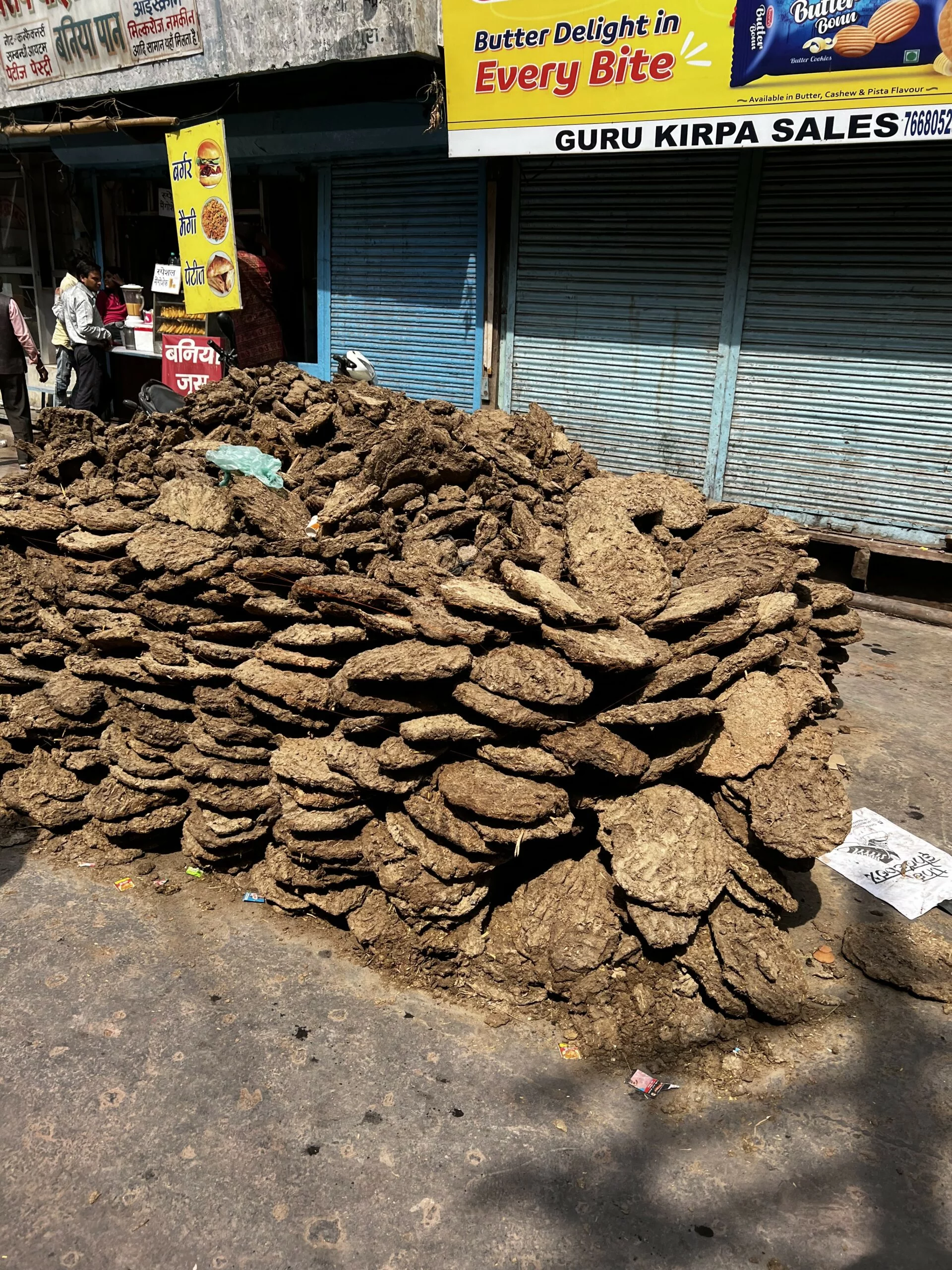
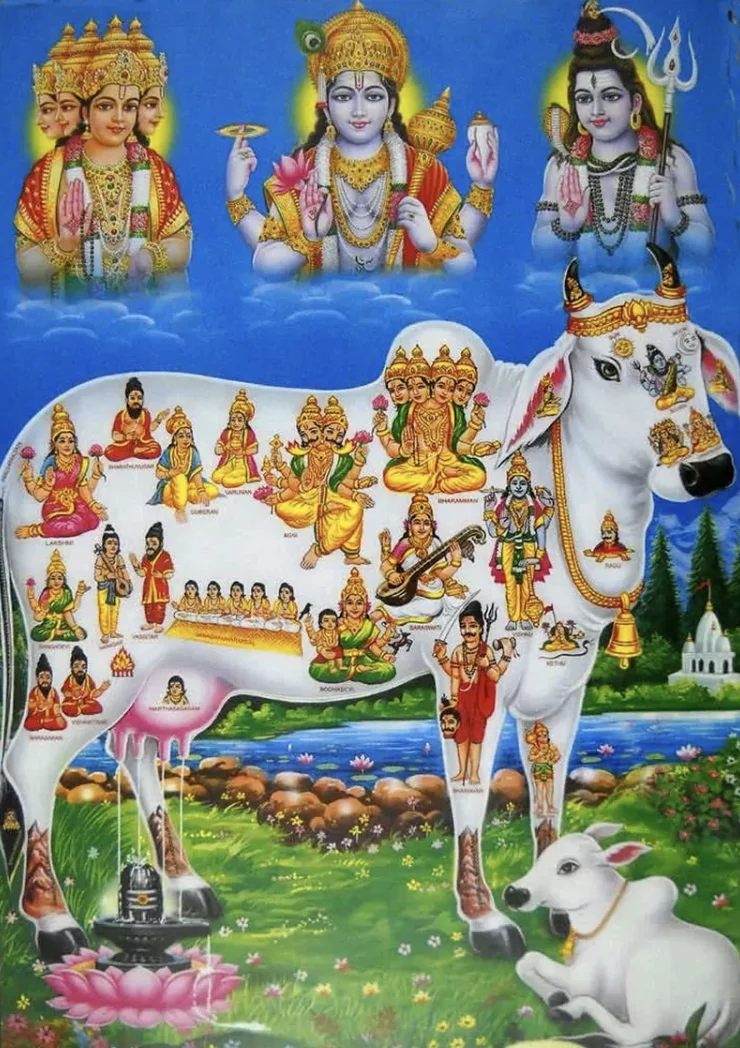
The reason why eating beef is illegal in most of India is deeply rooted in Hinduism. There are many reasons why Hindus don’t eat cows in general. In Hinduism, the cow is considered a sacred animal symbolizing life and motherly love. It’s believed to be the earthly representative of the divine and nourishing Mother Goddess. Its milk is considered nearest to mother’s milk, making it a mother figure for all creatures. Some Hindus even believe that their gods reside in the cow.
Krishna – one of the main Gods in the Hindu religion – is known to have been a cow herder and is often depicted with a cow in the images, along with his other favourite treat – buttermilk. This is another reason why cows are so highly respected.
Though the cow is considered sacred, the buffalo is not. Where the cow is seen as Mother, the buffalo is considered the vehicle of Yama – the god of death. So, worshipping the buffalo would indirectly mean that you worship the god of death. Hence, it’s legal to consume buffalo meat in most states throughout India.
Another reason why cows are looked up to is because they are so valuable.
According to Ayurveda, everything from the cow has some utility. Cow urine even has healing properties. Milk is considered pure and precious, and often gets used in poojas (Hindu rituals) because of its spiritual value. In some villages, houses still get built using cow dung. The cow is seen as an animal that complements multiple parts of daily life.
Some Hindus do eat beef, however, this is just 2% of the Hindu population in India. Nothing much happens if you do, though one can expect a slipper to the head, if the parents do find out about it. It varies from family to family, however, and most people belonging to the so-called ‘lower’ castes do eat beef, as this was how they used to survive when the caste system used to be more prominent.
Tensions Between Religious Groups
In recent years, India has witnessed a disturbing rise in violence known as cow vigilante violence. This phenomenon, perpetrated by Hindu nationalists against non-Hindus, primarily Muslims, aims to protect cows, considered sacred in the Hindu religion.
Since 2014, mob attacks targeting illegal cow smugglers, and even licensed cow traders, have increased in frequency, though it’s not clear whether there has been any rise in the actual frequency of such incidents. Government data says that communal tensions have reduced post-2014, but the reality on the ground tells a different story.
Cattle slaughter is banned in most Indian states, resulting in the emergence of cow protection groups across the country, as they vehemently claim to defend against cattle theft and smuggling while upholding the law in states that prohibit cow slaughter.
What seems at first look to be a noble, animal rights cause has taken a dark turn, with violence leading to numerous deaths in the past few years. According to Reuters, between 2010 and mid-2017, there were 63 cow vigilante attacks in India, resulting in 28 deaths and 124 injuries, with the majority of victims being Muslims.
The surge in cow vigilantism coincides with the election of a Bharatiya Janata Party (BJP) majority in 2014, with Human Rights Watch reporting an unprecedented increase in the frequency and severity of such incidents. Extremist Hindu groups, emboldened by the victory of the BJP, have targeted Muslim and Dalit communities under the pretext of protecting cows.
Dalit groups, responsible for disposing of cattle carcasses, are particularly vulnerable to attacks. These incidents, described as ‘vigilantism’ by Human Rights Watch, underscore a disturbing trend of violence escalating since 2015, largely due to the rise of Hindu nationalism in India.
The Supreme Court of India intervened in September 2017, urging each state to appoint a police officer in every district to take strict action against cow vigilantism. Despite this, attacks still happen. Vigilante attacks on trucks carrying cattle have increased, too, with reports of groups extorting money and stealing valuable livestock.
Currently, armed gangs claiming to protect cows patrol highways and combat what they deem cow smuggling, sometimes leading to confrontations with innocent people. These groups are made up primarily of young volunteers, often driven by emotional appeals depicting animal cruelty by local politicians or leaders.
As for the role of law enforcement in all this, the relationship of these groups with the police is complicated. While some collaborate, others accuse police forces of corruption and incompetence, asserting that they need to take matters into their own hands.
The Impact Tourism Has on Beef Consumption
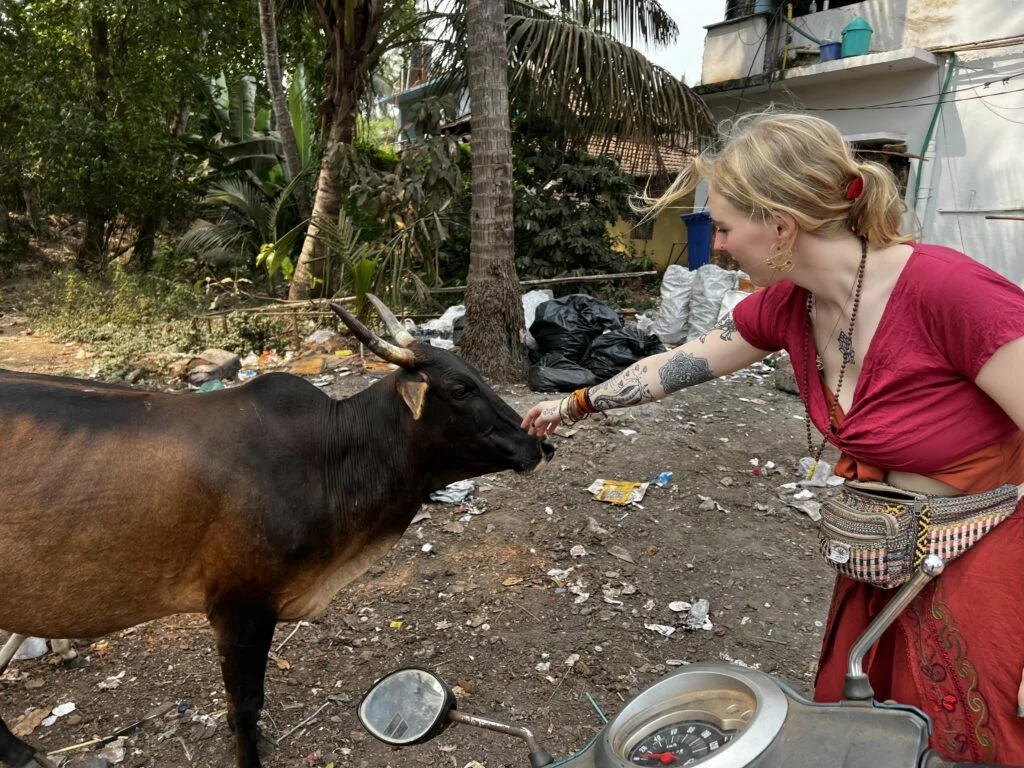
When a reporter questioned about the impact of beef consumption restrictions on foreign tourists, the Indian Minister of Union Tourism responded rather sarcastically ‘They can eat beef in their own countries, and then come to India’, which sums up the government’s take on foreign beef consumption in India.
Tourism has no impact on this aspect of Indian society, as rules are strict and the Hindu beliefs go above foreigners getting everything they want to eat in the country. That is (in my opinion) beautiful, as it’s their belief. The beliefs and cultures of countries shouldn’t be influenced by its tourists, who might want to visit India but don’t want to indulge in Indian culture.
The political and cultural nature of this problem, however, makes it larger than just eating preferences, which should be taken into account while thinking about beef-eating habits in India.

Jytte is a 22-year-old female adventurer from The Netherlands. She loves to fully immerse herself in the local ways of living, going ‘off the beaten path’ to truly experience the countries she visits and their unique way of life. Her wanderlust has taken her to Asia, with a particular focus on India. Here you’ll find her writing about all things India and Asia with a focus on digital nomadding there.
